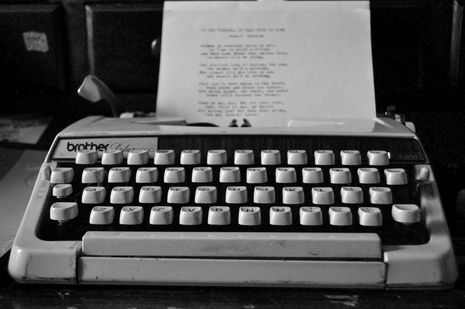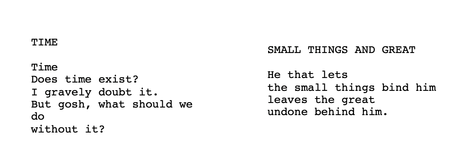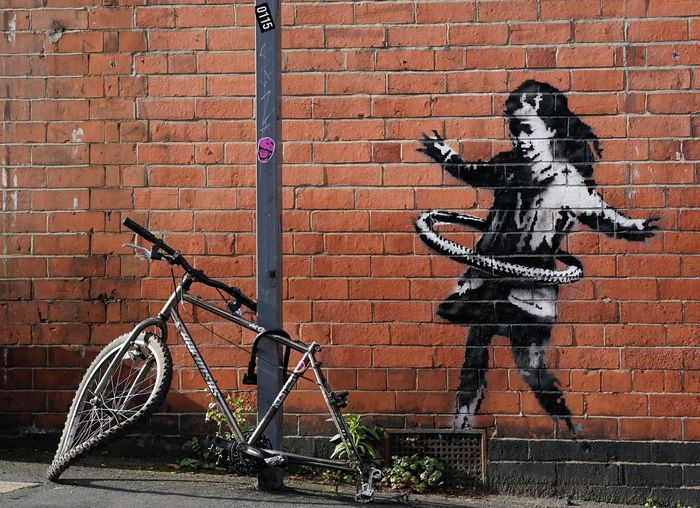To Laugh & Sigh: Piet Hein’s Grooks
Arts Editor Famke Veenstra-Ashmore covers the little known Danish polymath Piet Hein and his contribution to short poetry in the 20th century

Piet Hein: Danish polymath, inventor of the game hex, recreational mathematician – and poet – was first introduced to me in Cerys Matthews’ anthology Tell Me the Truth About Life. At first glance, his poems seem like humorous predecessors of ‘Instapoetry’: short and viral lines of writing which, more often than not, aren’t taken seriously by students of literature. However, the context of Hein’s writing throws into sharp relief the accessibility which ‘Instapoetry’ is facilitated by, and its intent could not be further removed from our current culture of poetry.
“Grooks earn their shortness and find an innate cleverness in their brevity”
First published in the newspaper Politiken, his ‘grooks’, a name thought to be derived from the Danish words ‘to laugh’ and ‘to sigh’, came about during the Nazi occupation of Denmark. Most reflect this emotional polarity, often incorporating satiric elements and irony within a political framework, protected by the humorous and lighthearted veneer which his simple language and form provides. It evokes that initial bemusement – the laugh, and later reflection – the sigh. Hein accompanied many of his grooks with small illustrations, harking to similar political cartoons, a phenomenon associated with short poetry which has been widely popular in recent years. One could look to the raw, simplistic, and visual style of Rupi Kaur as an example.
But Hein’s grooks are so fantastic because they don’t claim to be more than what they are. Micro-poems, especially those categorised by the rise of social media and ‘Instapoetry’, runs the risk of being insubstantial, or overly simple. It is easy to lose the impact of brevity if the words do not work hard enough themselves – I’m sure we’ve all winced at Gabbie Hanna’s ‘Relatives’ for example. Grooks earn their shortness and find an innate cleverness in their brevity. On the tongue, they feel in nature like the limerick. Much of their meaning is hinged on rhyme, allowing the reader to fully engage with the aphorisms present. Opposites, as well, finds themselves woven into the structural patterning of Hein’s work, reinforcing the feeling that meaning is being mirrored through the words. ‘Small things and great’ is intensely didactic, but retains a playful resemblance to a proverb that can be read as timeless advice, as well as a scathing contemporary political gesture.

There’s something inherently mathematical about grooks, which feels strange within the artistic space. But we know that so much art is derived from mathematics and attempts to understand the order and structure of the seemingly undefinable world. Poets and dramatists are known for incorporating mathematical features into their work, Beckett being just one example. Hein also occupies this intriguing space between art and science in his some 10,000 poetic aphorisms. Some are more overtly philosophical, inspired by the very first aphorists such as ancient Greek philosophers (‘Luck is what happens when preparation meets opportunity’ – Seneca) and the ancient wisdom poetry of the Middle East; there’s a long lineage of short, advisory poems and adages which have acted as spiritual guides for humanity for millennia. But there’s a coded dimension to Hein’s poetry which underscores its presence.
Losing one glove
- Grooks (@Grooks4) August 22, 2017
is certainly painful,
but nothing
compared to the pain
of losing 1,
throwing away the other,
& finding
the first 1 again. pic.twitter.com/CoOxPVEIlj
The transformative nature of grooks is what impresses me the most: little fragments of resistance that can be scattered across various public mediums. Under Nazi occupation, they were graffitied among the streets of Copenhagen as subtle spirit-builders. ‘Consolation grook’ is one of the most well-known grooks, outlining the ramifications of ill-considered actions. It is both a maxim referring to the contextual issues of its time, and a transcendent reminder of that ironic pain we all feel at some point. Now published in many languages, the grooks have become a fully accessible art form for expressing a need for this kind of support during times which seem to lack direction and security. They embody a tangible, universal truth, distilling down from an outward comedy to a deeper emotional release which stays with you. They exist with all the ingenuity of Shakespeare’s fools, combined with the viral potentials of ‘Instapoetry’ and all the comforts of the proverb: a real laugh and sigh.
Read a selection of Piet Hein’s Grooks here: http://www.sophilos.net/GrooksofPietHein.htm
 News / Colleges charge different rents for the same Castle Street accommodation2 March 2026
News / Colleges charge different rents for the same Castle Street accommodation2 March 2026 News / News in Brief: waterworks, wine woes, and workplace wins 1 March 2026
News / News in Brief: waterworks, wine woes, and workplace wins 1 March 2026 News / Climate activists protest for ‘ethical careers policy’1 March 2026
News / Climate activists protest for ‘ethical careers policy’1 March 2026 News / Angela Merkel among Cambridge honorary degree nominees27 February 2026
News / Angela Merkel among Cambridge honorary degree nominees27 February 2026 News / Private school teacher who lied about Cambridge degree barred from teaching27 February 2026
News / Private school teacher who lied about Cambridge degree barred from teaching27 February 2026










